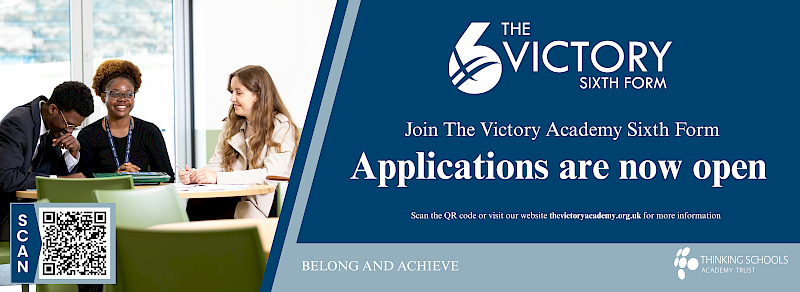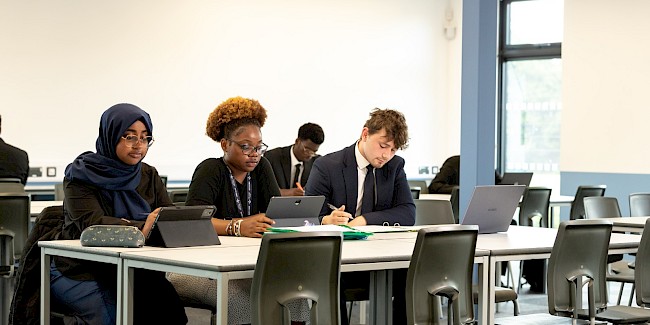
Applications for The Victory Academy Sixth Form are now open! To apply please click here.

Applications for The Victory Academy Sixth Form are now open! To apply please click here.
Why is it important to study Psychology? Psychology studies allow us to acquire a variety of different skills ranging from the behaviour observed to the physiology of the brain. The aim is to understand how the human mind works and how it allows the implementation of different behaviours in different situations.
Overall, psychologists assess, diagnose, and treat the psychological problems and the behavioural dysfunctions resulting from, or related to physical and mental health. In addition, they play a major role in the promotion of healthy behaviour, preventing diseases and improving quality of life.

Psychology is the study of the relationship between behaviour, performance and mental processes. Applied psychology is the application of this knowledge to understand events such as treating mental health issues, improving sporting performance, understanding how children develop and how to treat criminals. There is a wide range of possible employment opportunities following further study at degree level.
Applied Psychology helps you understand yourself and other people by learning about aspects of human behaviour that will help you in daily life. You will develop knowledge and understanding of key approaches and theories in psychology and apply these to issues relevant to contemporary society, for example lifestyle choices and unhealthy behaviours such as addiction. You will learn about the types and characteristics of mental disorders, approaches to treatment, and the role of professionals in supporting and promoting mental health. In addition, skills will be developed to explore the scientific process in psychological research methodology through conducting your own psychological research pilot study.
Within the Vocational Faculty, the aims of the Applied Psychology course are;
| Year 12 | Year 13 |
|---|---|
UNIT 1: PSYCHOLOGICAL APPROACHES AND APPLICATIONS – EXAM IN MAY
| UNIT 2: CONDUCTING PSYCHOLOGICAL RESEARCH
|
| UNIT 6: INTRODUCTION TO PSYCHOPATHOLOGY
| UNIT 3: HEALTH PSYCHOLOGY - EXAM IN JANUARY
|
A BTEC National Extended Certificate in Applied Psychology develops the skills, knowledge and understanding needed to progress into a variety of careers or on to Higher Education at University.
The following are some examples of the wide range of psychology jobs that are available;
Psychology can also be useful in a variety of jobs including;
There are many websites dedicated to finding a career in Sport. Here are some examples;
The Guardian Jobs
https://jobs.theguardian.com/landingpage/2867373/jobs-psychology-html/
Jobs in Psychology
https://www.jobsinpsychology.co.uk/
Careers: Your journey in to Psychology